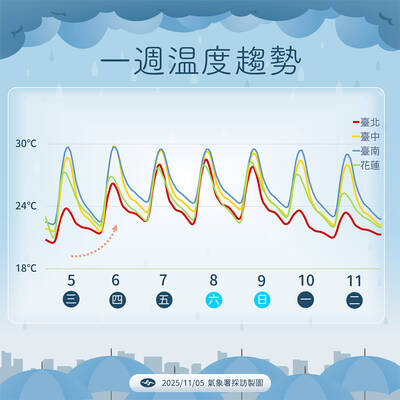The Kaohsiung District Court yesterday sentenced a man surnamed Lee (李) to four years in prison for selling chili powder that contained an industrial dye, Sudan Red, which is banned in Taiwan.
The court fined three of his companies a total of NT$7.5 million (US$242,213).
Lee was found guilty of committing fraud with more than three accomplices and publishing false product information online to deceive the public.

Photo: CNA
Four codefendants, including a woman surnamed Wu (吳), the elder sister of Lee's ex-wife, received prison terms ranging from one year and four months to two years and four months, the court said.
The ruling also ordered the confiscation of criminal proceeds totaling about NT$21.02 million.
Prosecutors said Lee, 47, was the actual person in charge of Gin Zhan International Co, Ltd, Hai Shuen International Foods Co, Ltd and Chia Guang International Co, Ltd, and also served as executive director of Long Hai Tong Ji Foods Co, Ltd in China.
Lee and Wu imported chili powder from China that tested positive for Sudan Red III, a fat-soluble dye classified as harmful, the Kaohsiung District Prosecutors' Office said.
After the shipment was returned, they repackaged the product into different containers, declared it under other company names, and resold it in Taiwan.
Even after some batches were found to contain Sudan Red and returned, Lee and others failed to destroy the goods and instead instructed employees to sell them to another downstream enterprise, investigators said.
Investigators found that Lee and his associates changed manufacturing labels during customs declarations to evade border inspection and submitted spice samples without Sudan Red to obtain qualified reports.
If downstream enterprises conducted their own testing, Lee ordered staff to switch the samples, prosecutors said.
Using this method, the group sold 99,558kg of products with a total sales value exceeding NT$10 million.
Prosecutors said that starting in March 2021, Lee also imported preserved vegetables from China and relabeled them to falsely claim they were made from Taiwanese cabbage, and sold them to physical stores and e-commerce platforms.
Prosecutors said Lee also defrauded a company by selling it fragrant spicy chili powder that had been made and processed in China, which the company did not know, earning him more than NT$10 million.
The Kaohsiung District Prosecutors' Office said it has seized more than NT$134.8 million in assets under Lee's name and indicted six people, including Lee and Wu, as well as six related companies, for contravening the Act Governing Food Safety and Sanitation (食品安全衛生管理法) and committing fraud.
Prosecutors said Lee disregarded social responsibility and public health, and used deceptive methods such as relabeling containers and replacing samples to evade inspection, urging the Kaohsiung District Court to impose a heavy sentence.
The ruling may be appealed.

Three Taiwanese airlines have prohibited passengers from packing Bluetooth earbuds and their charger cases in checked luggage. EVA Air and Uni Air said that Bluetooth earbuds and charger cases are categorized as portable electronic devices, which should be switched off if they are placed in checked luggage based on international aviation safety regulations. They must not be in standby or sleep mode. However, as charging would continue when earbuds are placed in the charger cases, which would contravene international aviation regulations, their cases must be carried as hand luggage, they said. Tigerair Taiwan said that earbud charger cases are equipped

Foreign travelers entering Taiwan on a short layover via Taiwan Taoyuan International Airport are receiving NT$600 gift vouchers from yesterday, the Tourism Administration said, adding that it hopes the incentive would boost tourism consumption at the airport. The program, which allows travelers holding non-Taiwan passports who enter the country during a layover of up to 24 hours to claim a voucher, aims to promote attractions at the airport, the agency said in a statement on Friday. To participate, travelers must sign up on the campaign Web site, the agency said. They can then present their passport and boarding pass for their connecting international

UNILATERAL MOVES: Officials have raised concerns that Beijing could try to exert economic control over Kinmen in a key development plan next year The Civil Aviation Administration (CAA) yesterday said that China has so far failed to provide any information about a new airport expected to open next year that is less than 10km from a Taiwanese airport, raising flight safety concerns. Xiamen Xiangan International Airport is only about 3km at its closest point from the islands in Kinmen County — the scene of on-off fighting during the Cold War — and construction work can be seen and heard clearly from the Taiwan side. In a written statement sent to Reuters, the CAA said that airports close to each other need detailed advanced

UNKNOWN TRAJECTORY: The storm could move in four possible directions, with the fourth option considered the most threatening to Taiwan, meteorologist Lin De-en said A soon-to-be-formed tropical storm east of the Philippines could begin affecting Taiwan on Wednesday next week, the Central Weather Administration (CWA) said yesterday. The storm, to be named Fung-wong (鳳凰), is forecast to approach Taiwan on Tuesday next week and could begin affecting the weather in Taiwan on Wednesday, CWA forecaster Huang En-hung (黃恩鴻) said, adding that its impact might be amplified by the combined effect with the northeast monsoon. As of 2pm yesterday, the system’s center was 2,800km southeast of Oluanbi (鵝鑾鼻). It was moving northwest at 18kph. Meteorologist Lin De-en (林得恩) on Facebook yesterday wrote that the would-be storm is surrounded by